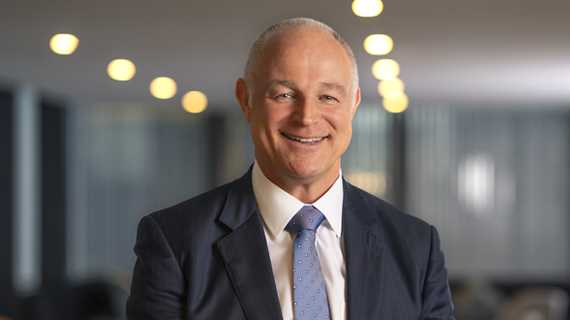Aviva launches alpha-generating climate fund
Aviva Investors last week (November 30) launched an Australian-domiciled global equities fund for institutional investors, targeting alpha from companies that are either providing solutions to climate change or transitioning their business models for a low-carbon economy. The strategy is based on the firm’s European version of the fund.
The Climate Transition Global Equity Fund, which has been seeded by the Aviva group, is a local unlisted unit trust which acts as a feeder fund to Aviva Investors’ Luxembourg vehicle. The manager also launched a UK-domiciled unit trust in June this year following last year’s European fund launch.
Brett Jackson, Aviva Investors managing director, Australia, said “We decided to launch this strategy as we felt it addresses the needs of many Australian clients who have just started, or are about to start, their decarbonisation journey.”

“This strategy goes beyond reducing emissions and considers the value chain impact of climate change, something passive solutions don’t address. We believe that companies adapting their business models to a warmer but lower carbon world will do better.”
The global fund is looking to achieve average returns of 2 per cent or more above the MSCI ACWI benchmark. This would put the fund comfortably in the top quartile of all global equities funds. The UK unit trust had already beaten that in its first few months since inception, Jackson said, and the Climate Transition European Equity fund outperformed its benchmark (MSCI Europe Index) by 15.13 per cent for the year ending 31 October 2020.
Jaime Ramos Martin, the UK-based portfolio manager for the strategy, said: “We look at climate change as a risk and opportunity as it will affect every sector of the economy.”
A lot of the alpha comes from the opportunistic nature of the high-conviction stock-picking process, which has three ‘pillars’. They are:
- An exclusion policy, aimed at “avoiding harm”, which focuses on the most carbon intensive fossil fuels. This leads to zero tolerance for coal but will allow up to 10 per cent of a company’s revenue from oil and gas production and electricity generation and 15 per cent from natural gas electricity generation.
- Companies which provide solutions and derive at least 20 per cent of their revenue from themes related to mitigating or adapting to climate change. For example, these could be companies which help “climatise” buildings, and supply water. “In Australia and in Spain, where I come from, it’s hot already but it’s going to get hotter,” Ramos Martin said. “We invest in companies who are ready with solutions.”
- Transition orientated companies, those who are aligning their business models to be resilient in a warmer, low-carbon world. To identify these, Aviva Investors has built a transition risk model which ranks companies which are better prepared for transition. For example, in the food sector supply chain, Unilever, one of the world’s largest food companies, has committed to be “deforestation free” by 2023.
Ramos Martin said there were companies which were moving towards eliminating their coal exposures but a lot of them were talking about targets of 2030 or later. “There not enough time for that,” he said. “We need to take this seriously.”
Aviva Investors believe, and is supported by, a recent IMF report on its view, that the markets are not properly pricing the policy and physical impact of climate change. “There’s clear evidence of that,” Ramos Martin said. “Climate change is the biggest market inefficiency.”
Aviva Investors’ transition risk model has two parts: it looks at the top-down sub-industry level risks and then assesses the bottom-up “climate change awareness” of individual companies. At the sector level it studies 159 sub-industries for de-carbonisation risks and the potential for physical impact across its value chain. This is based on academic and manager research. Individual company awareness is assessed with the help of an NGO called the Carbon Disclosure Project (CDP), which rates each company through an annual assessment.
The sectors are placed into one of three buckets – high, medium and low risk – and the individual companies matched up so that if a company is in a high-risk sector, it needs to have a very high CDP rating to make it into the portfolio. A company operating in a low-risk sector can make it with a lower CDP rating.
An example of a company passing Aviva Investors’ transition risk assessment is Volkswagen. The company has announced it will spend more than €35 billion (A$57 billion) on electric vehicle production by 2025, which will total more than three million cars, or 20 per cent of sales. One should remember that VW is the largest western carmaker in China, which has committed to a wide range of emissions-reducing policies.
“I like Volkswagen on the transition side,” Ramos Martin said. “It gets a very high rating by CDP… The diesel emissions scandal brought them around and they’ve already invested billions on electric vehicles. Unlike many of the other major traditional manufacturers, VW created a new manufacturing platform from the ground up. Ford in Europe is using the VW platform and BMW recently announced it would build its own new platform for electric vehicles.”
Jackson said that Aviva Investors believed that ESG factors are so crucial in investment decisions today that it was not negotiable to the firm. “We’re very proud to bring this fund to Australia. Superannuation funds are reaching out for solutions for how to decarbonise their investment portfolios urgently. The world needs to reduce emissions by 7 per cent per annum to ensure global warming only increases by 1.5 degrees celsius by 2050. We need emissions to peak this year to have any hope of achieving this target,” he said.
The new fund has a minimum investment of $500,000, making it accessible to wholesale and family office-type Australian and New Zealand investors as well as big super funds.
Note: Aviva Investors is a sponsor of Investor Strategy News.









